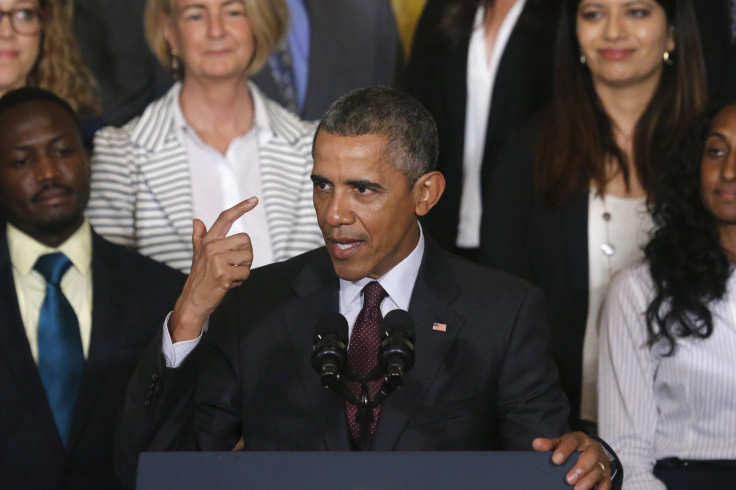Obama Iran Deal Speech Live Stream, Preview Of Remarks At American University

President Barack Obama was expected to speak about the heavily debated Iran nuclear deal in a speech Wednesday at American University in Washington, D.C. Obama will likely defend the deal, pushing for the support of a Congress that could derail the agreement.
The White House has argued the congressional vote that could halt the deal is "the most consequential foreign policy debate since the decision to go to war in Iraq," according to USA Today. The deal would ease sanctions on Iran in exchange for the country curtailing its nuclear program and agreeing to inspections. In his speech Wednesday, Obama will reportedly "point out that the same people who supported war in Iraq are opposing diplomacy with Iran, and that it would be an historic mistake to squander this opportunity," White House aides told USA Today.
The speech was scheduled to begin at 11:20 a.m. ET, according to American University. For a live stream feed, tune into the White House's feed here or watch C-Span's feed here.
WATCH @POTUS speech at AU on @TheIranDeal at AU today at 11:20am on http://t.co/8z1lG3r3XP or http://t.co/4zw76RBD1E #ObamaAtAU
— American University (@AmericanU) August 5, 2015Obama will need the support of about one-third of Congress to assure the deal goes through. The deal doesn't need Congress' approval since it is not a treaty, but it can be rejected should two-thirds of both the House and Senate vote it down. House Foreign Affairs Committee proposed a resolution to do so Tuesday, with House Majority Leader Kevin McCarthy promising a September vote following the summer recess.
Obama's choice of American University is purposeful. President John F. Kennedy spoke at the university in 1963 to push for a nuclear test-ban treaty with the Soviet Union.
"What’s appropriate about that comparison is President Kennedy, more than 50 years ago, entered into a diplomatic agreement with an adversary of the United States that did succeed in advancing the national security interests of the United States,” White House press secretary Josh Earnest said Tuesday.
Critics of the deal like Israeli Prime Minister Benjamin Netanyahu, who has lobbied against it, are skeptical of Iran and say the deal helps Tehran support terrorist activity. Obama was expected to argue for Congressional support Wednesday, but has said in the past he expects there to be a fair bit of back-and-forth on the deal he says is a win for peace.
“I expect the debate to be robust, and that’s how it should be,” Obama said in July, according to PBS, reminding lawmakers to “remember the alternative.”
A poll released Monday found that about 57 percent of American voters do not appove of the proposed agreement with Iran. "There's not a lot of love for the proposed nuclear deal with Iran. Only a bare majority of Democrats support the pact," said Tim Malloy, assistant director of the Quinnipiac University poll.
© Copyright IBTimes 2024. All rights reserved.












